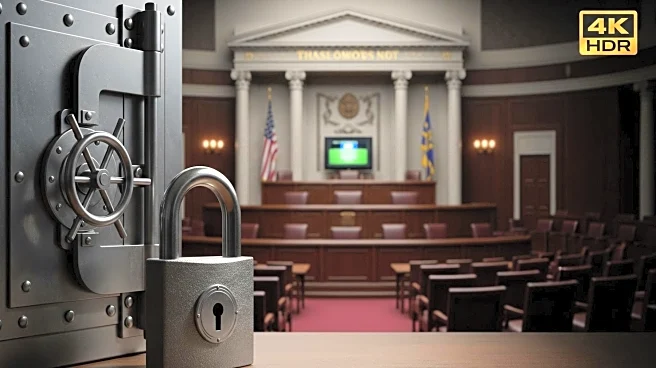What is the story about?
What's Happening?
The U.S. government has partially shut down following Congress's failure to approve a necessary funding bill. This development occurred on Wednesday, as lawmakers were unable to reach a consensus on budget allocations, leading to a halt in non-essential government operations. The shutdown affects various federal services and employees, with many facing furloughs or working without pay until a resolution is reached.
Why It's Important?
A government shutdown has wide-ranging implications for the U.S. economy and public services. It disrupts federal operations, affecting everything from national parks to regulatory agencies, and can lead to delays in services and economic uncertainty. The shutdown also places financial strain on federal employees and contractors, who may face unpaid leave. Politically, it highlights ongoing divisions within Congress, impacting public perception and potentially influencing future elections.
What's Next?
The next steps involve negotiations between congressional leaders to reach an agreement on the funding bill. Stakeholders, including political leaders and affected employees, will likely advocate for a swift resolution to minimize disruptions. Public pressure may increase as the shutdown continues, urging lawmakers to find common ground and restore government operations.















